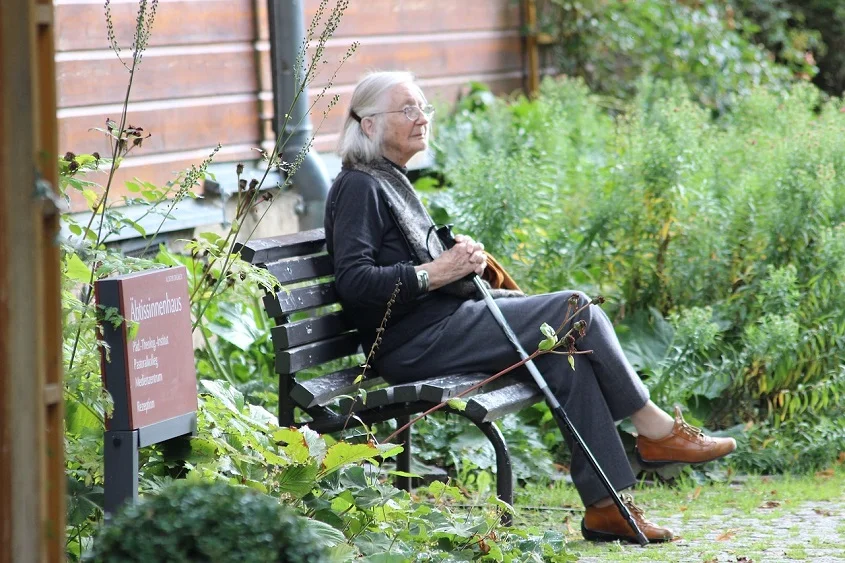Taking the Stand Against Dementia at Any Age
- Updated on: Nov 25, 2024
- 5 min Read
- Published on Aug 18, 2023

We’re all aiming to increase our standards of living, to live longer, happier, and healthier lives. However, as the average age increase, there is a family of conditions that is growing only more concerning. Dementia types, including Alzheimer’s, can be a major threat to our livelihood and happiness as we age. We should always be on the lookout for the early signs of dementia so that we’re able to act and ensure independence as best as possible but, while we have no cure, it’s important to focus on prevention while we can. Here are a few of the ways you can reduce your chances of developing dementia in later life.

Staying active
Exercise is, naturally, important to our general health. But it can be just as good for your head as for your body, with some studies showing that exercise could decrease the risk of dementia and Alzheimer’s by up to 45%, provided that you’re keeping up with it over time. Exercise is well known to improve memory, our logical skills, and the ability to process new information, to the point that it can even boost the growth of the hippocampus, which is the region of the brain that is key to memory. Another reason to ensure that you stay active no matter how you age is that there are all kinds of exercise routines for older people to keep up with it, too.
Managing your diet
Of course, if we’re talking about the benefits of exercise, then it should be no surprise that we’re going to look at the importance of a healthy diet, as well. There are a lot of foods that have proven to be good for your mental functions, including things like fish with omega-3 fatty acids, berries, as well as leafy green vegetables. These foods are often included as part of what is called the MIND diet. As the name implies, this diet is specifically designed to help improve mental function and could play a role in decreasing your risk of Alzheimer’s and dementia.
Supplementing your brain
Of course, there are ways to improve the nutrition of the brain beyond diet alone. Supplements can play a role in ensuring you get the nutrients that you won’t from eating alone, and one that has shown some promise, especially when used alongside the cholinesterase inhibitors often used to treat dementia, is that of nootropics. Keep up with the latest on nootropics to see which best suit your needs, as there are new varieties being released on a regular basis. All nootropics are designed, in some part, to improve cognitive function, but you may want to focus on those that propose specific benefits to your memory, the part of the mind most relevant to dementia.

Exercising the brain
The brain may not be a muscle, but it certainly works like one sometimes. That is, if you don’t use parts of the brain, then they are going to diminish over time. Daily brain exercises have long been proven to help you improve the different parts of your brain, and can even encourage the physical growth of it, no matter what your age is, while preventing the shrinkage of grey matter that is often associated with dementia. As such, you should look at what kind of brain exercises you can start to engage in, whether it’s Sudoku, crosswords, or something else entirely. What matters is that you take the time to exercise it at least a little bit every day. If you can add some variety to that exercise, that’s even better.
Keep on learning
Working out the parts of the brain with teasers, puzzles, and exercises is one thing. However, one of the best ways to ensure that all of your brain is staying engaged is to learn new things, as well. There comes a point where a lot of us don’t engage with learning new disciplines, new hobbies, or new skills as we get older. As such, our brain doesn’t get challenged and doesn’t grow in the same way. If we’re constantly engaging in the same kind of mental stimulation, it can become less effective over time. You might want to look at picking up a new language, or a new hobby such as cooking or crafting.
Be mindful of stress
Stress can be a lot more serious than just a temporary feeling of pressure and worry. It can be a damaging chronic issue that, when out of control, is amongst the most prevalent of dementia risks. This is, in large part, due to the fact that cortisol, which is commonly known as the stress hormone, can increase oxidative stress, leading to the breakdown of cells, including in the brain. Cognitive decline has been shown to follow periods of great stress, such as the loss of a loved one or a divorce, or falling out with those close in your life. The link between stress and dementia is heavily documented but not fully understood. As such, efforts should be taken to manage it, whether by seeking counseling when feeling overwhelmed or by learning techniques like meditation.

Avoid isolation
As we get older, our family can get more spread out, friends can become more distant as their own lives get more complex, and we can lose loved ones. As such, isolation can begin to set in before we even get to know it. It’s important to make sure that this doesn’t happen. Isolation and loneliness are one of the single greatest risk factors associated with dementia. Socializing has all manner of mental benefits, keeping us more empathetic and aware of the internal lives of others, improving passive memory and decision-making, and even staving off mood disorders such as depression. You have to take charge and find new ways to socialize as you get older, such as by finding social and hobby groups that can bring you in contact with new people.
As mentioned, there is no cure for dementia. Nor is there any guarantee as to what will stop it, as studies are still being done into it. As far as we know, however, the tips above can offer you your best bet.










